Synthetic Biology FSP

August 2018

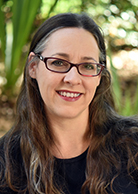 |
Welcome to the SynBio FSP’s August eNewlsetter. We are “coming up for air” after the EOFY and extensive internal and external reviews over the last few months. In June, CSIRO’s Science Council reviewed the SynBio FSP’s progress as part of the Future Science Platform program review; a few weeks later we were reviewed as part of the Land & Water Business Unit’s external science review. In preparing for both the Science Council and the Business Unit reviews, I have had the opportunity to reflect on what we have achieved. It is indeed substantial!
We have grown rapidly, transitioning from a $13 million investment to a $40 million research and development program with over 60 projects working across six of CSIRO’s Business Units. We partner with 15 Australian universities, three Australian medical research institutes, 22 international universities and three international research agencies; 40% of our funding is provided through leveraged co-investments with partners.
Our collaborations provide us with access to extensive facilities and resources in addition to CSIRO’s broad capability, and allow us to deliver on research that we couldn’t otherwise do. They also significantly increase our capabilities in the training and development of the next generation of Australian synthetic biologists. Our collaborative network includes almost 200 people extending nationally and internationally, and we partner with key individuals and institutes that have been involved in founding and growing SynBio as a field.
The SynBio FSP has had a broader impact both within CSIRO and across Australia. We have developed new collaborative models though our Fellowship and Alliance programs that have delivered a very strong positive response from the university sector. Through our Maximising Impact Domain and the Responsible Innovation Initiative, we are developing a new social science capability for CSIRO.
We have had input into Federal biotechnology and synthetic biology policy through the Australian Council of Learned Academies (ACOLA) road-mapping report into SynBio, the National Innovation and Science Agenda (NISA) call for SynBio infrastructure, and the federal Office of the Gene Technology Regulator (OGTR) review of the Gene Technology Act. We have also contributed to international SynBio policy development though the UN Convention on Biological Diversity.
We have already made significant contributions to the broader Australian and international conversation about advanced biotechnology through our many media and event interactions.
The feedback from both formal reviews was very positive, particularly around the cash and in-kind leveraging into the SynBio FSP through our Fellowships and Alliances programs, as well as our large national and international network. We are tracking very well against our KPIs and against the strategic goals of the FSP program. Overall, we passed the review with flying colours and with great feedback.
I am also pleased to announce that CSIRO has recently purchased basic equipment to build high throughput robotic bioengineering capability (known as a BioFoundry). Once fully commissioned, the BioFoundry will provide a service to the Australian R&D community.
Our remarkable progress is a result of all your hard work. I’d like to take the opportunity to thank you all for your contributions to the FSP so far – especially our outstanding support team. It has been an absolute pleasure and a privilege to work with you all and I look forward to continuing our activities going into the future.
Don't forget to put this year's SynBio FSP Workshop in your calendars - I hope to see you all there:
Date: 29-30 November, 2018
Location: CSIRO's North Ryde site, Sydney
Two more important dates for your diaries: the ACOLA Synthetic Biology report will be launched 4 September; and the 7th International Yeast 2.0 and Synthetic Genomes Conference, 26-28 November, which will be the key synthetic biology meeting in Australia for 2018. Details for both are provided below.
All the best,
Claudia
Assoc. Professor Claudia Vickers
Synthetic Biology Future Science Platform Leader
CSIRO
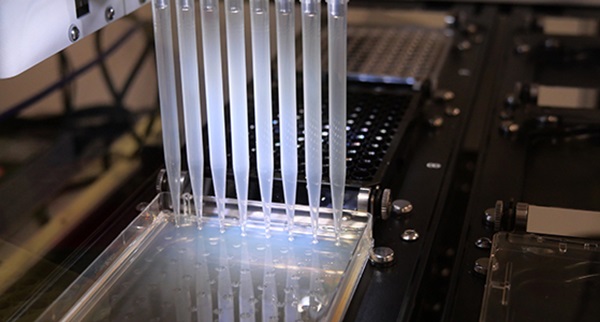
The new BioFoundry facility is a prototype system that aims to help synthetic biology research in Australia move into the new high-throughput era. The facility currently includes liquid handling robots (Cybio FeliX and Labcyte Echo), an automated colony picker (Singer Instruments PIXL) and DNA analysis equipment (AATI ZAG DNA Analyzer). Additionally, to enable rapid combinatorial design of DNA, as well as sample standardization and tracking, the BioFoundry will use Teselagen cloud software. So what can the facility do? Some of the functionality includes: DNA assembly, high-throughput construction of genetically modified microorganisms, Next Gen sequencing setup, high-throughput cell screening, cell-based and biochemical assays, proteomics, (q)PCR setup, DNA extraction and purification, ADME and toxicity assays, ELISA, and more! This robotic facility aims to free up scientists from laborious, repetitive lab work so they can concentrate on designing their research, and allow them to execute high-throughput projects on an unprecedented scale.
The equipment is located at the University of Queensland, taking advantage of on-site systems biology capabilities and we are working with the Macquarie University foundry capability to rapidly grow Australian capacity to perform state-of-the-art research in synthetic biology. All researchers interested in more automated, high throughput protocols are encouraged to get in touch.
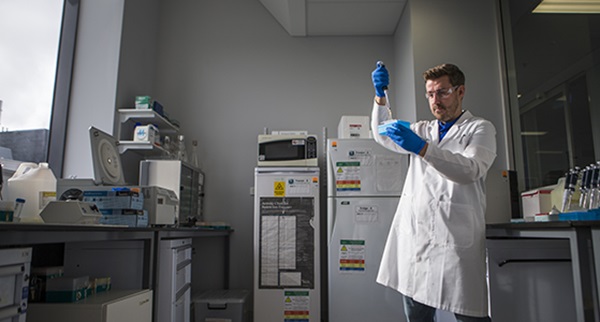
Lee is one of our new Future Science Fellows, working on a new platform for user-friendly diagnostic tests for pathogens that may be carried out at point-of-care, in low resource settings, and at just a fraction of the cost of current methods.
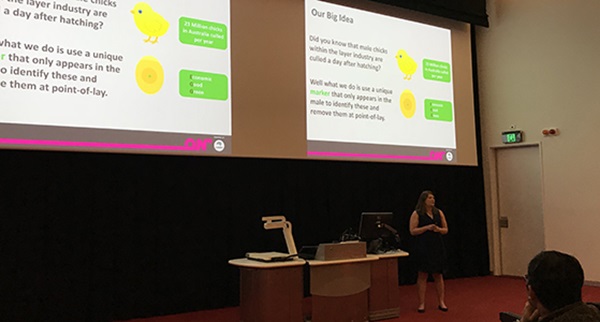
Select-Eggz, a project funded by the FSP and CSIRO Health & Biosecurity, was selected to participate in ON Prime this year. The project is using genetic marker technology to identify male chicken embryos the day they are laid, preventing the culling of hatched male chicks in the egg laying industry. In addition to preventing the culling of male chicks, being able to sex-sort chicken embryos on the day they are laid saves farmers money, reduces to carbon footprint of the poultry industry, and enables the use the male embryos for production of high value bio-products.
The project team, consisting of Caitlin Cooper (pictured), Mark Woodcock, Mark Tizard, Jon Spaits and Asaesja Young, underwent an 8-week program where they were introduced to various tools to assess and develop their project. This included stakeholder mapping, business model canvassing to understand the broader industry, and developing value propositions to evaluate the worth of the idea against existing technologies. As part of this process they conducted over 100 interviews with potential stakeholders!
“The ON Prime process was really great for moving our project forward, however I think it also gave the entire team a chance to develop new skill sets,” Caitlin says.
“It also helps ground you in the really practical considerations around how you translate research from the lab into an industrial/commercial setting.”

We are currently seeking expressions of interest to attend the ON Program LaunchCamp. Launch camp is a 2-day experience designed to help you take the first steps towards understanding the market for your research idea. The Launch Camp will develop your skills to facilitate customer discovery, discover how lean innovation can be used to chart pathways to impact, and introduce teams to tools and the mindset to start the process of "proof of problem". The SynBio FSP will support registration costs for LaunchCamp, but places are limited. There are currently events scheduled for Melbourne and Brisbane in August and Sydney in September. If you are interested please contact Lisa Devereaux (lisa.devereaux@csiro.au).
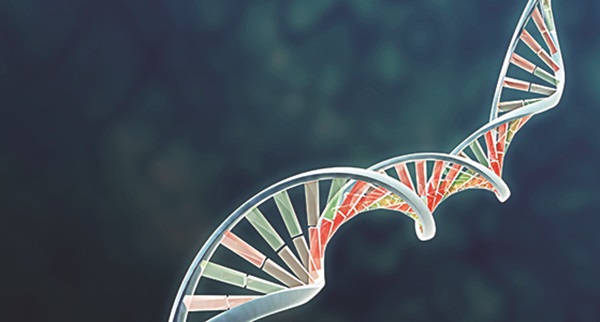
The Office of the Chief Scientist of Australia commissioned the Australian Council of Learned Academies (ACOLA) to write a road mapping report into synthetic biology in Australia, Synthetic Biology in Australia: An outlook to 2030. This report has been compiled over the course of 12 months and will provide Australia’s synthetic biology roadmap going into the future; similar national reports have driven significant policy engagement internationally. The report will be launched at a free event in Brisbane on 4 September 2018.
Foundation Technologies
Two new Future Science Fellows joined the Foundation Technologies Domain this year through the 2018 Fellowship round: Daniel Winter and Melanie Carmody. Matthew Baker has also joined the team after gaining a project award.
Claudia Vickers presented at the Metabolic Engineering XII Conference in Munich on behalf of the FSP.
Environment and Biocontrol
Two new Future Science Fellows joined the Environment and Biocontrol Domain this year through the 2018 Fellowship round: Apostolos (Lee) Alissandratos and Maciej Maselko.
We signed a partnership agreement with Australian Wildlife Conservancy to explore the potential for gene drive applications to be used in control of feral cats (see the media coverage below).
Owain Edwards attended the United Nations Convention on Biological Diversity meeting of the Subsidiary Body on Scientific, Technical and Technological Advice in Montreal in July to discuss the implications of SynBio.
Chemicals and Fibres
One new Future Science Fellow joined the Chemicals and Fibres Domain this year through the 2018 Fellowship round: Bingyin Peng.
Colin Scott attended the BIO World Congress on Industrial Biotechnology in Philadelphia in July on behalf of the FSP.
Health and Medicine
Five new Future Science Fellows joined the Health and Medicine Domain this year through the 2018 Fellowship round: Fatwa Adikusuma, Elliot Gerrard, Tara Richman, Frank Sainsbury and Tom Weber.
Andy Bean attended the BIO International Convention 2018 in Boston in June on behalf of the FSP.
Maximising Impact
We have completed stakeholder mapping workshops with each of the other Application Domains. These workshops were designed to collectively determine our most pressing social and ethical considerations, through activities such as systems and stakeholder mapping. The workshops also provided the MI Domain with an opportunity to better understand each Domain’s science focus and the particular technologies or activities under development, with some insights into the relevant challenges and needs. We were pleased with the turnout at the mapping workshops and would like to acknowledge the contribution of all scientists involved—you did a fantastic job! We hope those who took part will mutually benefit from a deeper appreciation of the social context of their work.
We are also currently developing the National Baseline Survey. MI Domain scientists have met with the other Application Domain leaders and are now engaging with the content specialists (Fellows, project leaders) to develop hypothetical cases for the 8 parallel surveys that will make up the national survey.
Alison McLennan has joined the team after gaining a project award.
We have guidelines to follow when it comes time to publishing your research, which are detailed in full in the FSP’s Guide for staff and affiliates on our team Confluence site.
Here are some of the main things to remember:
When preparing your manuscript for publication you should include an affiliation to the FSP for FSP-funded projects, or for anyone whose salary is covered by FSP funding, by adding this affiliation to the title page of your manuscript:
‘CSIRO Synthetic Biology Future Science Platform’
This is in addition to any other affiliation you may have.
To acknowledge funding received from the FSP you should also add the following to the Acknowledgements section:
‘This work was funded through the CSIRO Synthetic Biology Future Science Platform.’ or ‘This work was funded in part through the CSIRO Synthetic Biology Future Science Platform.’
In addition, CSIRO requires that CSIRO-affiliated publications go through our ePublish system for review prior to publication in a journal.
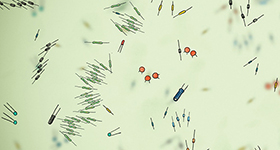 " After="" />
" After="" />
FSP Leader, Claudia Vickers, and Future Science Fellow, Nina Pollak, featured in the Cosmos special issue 'Life 2.0: inside the synthetic biology revolution'.
 " After="" />
" After="" />
Andy Sheppard spoke with ABC News about the potential for gene drive technologies to play a role in the control of feral cats.
Lygie Esquirol, Thomas S. Peat, Matthew Wilding, Jian-Wei Liu, Nigel G. French, Carol J. Hartley, Hideki Onagi, Thomas Nebl, Christopher J. Easton, Janet Newman, Colin Scott. (2018) An unexpected vestigial protein complex reveals the evolutionary origins of an s-triazine catabolic enzyme. Journal of Biological Chemistry, 293: 7880-7891.
Benjamin Pouvreau, Thomas Vanhercke, Surinder Singh. (2018) From plant metabolic engineering to plant synthetic biology: The evolution of the design/build/test/learn cycle. Plant Science, 273: 3-12.
Briardo Llorente, Thomas C. Williams, Hugh D. Goold. (2018) The Multiplanetary Future of Plant Synthetic Biology. Genes, 9(7): 348.
Alexander C. Carpenter, Ian T. Paulsen, Thomas C. Williams. (2018) Blueprints for Biosensors: Design, Limitations, and Applications. Genes, 9(8): 375.
Bingyin Peng, Lars K. Nielsen, Sotirios C. Kampranis, Claudia E. Vickers (2018) Engineered protein degradation of farnesyl pyrophosphate synthase is an effective regulatory mechanism to increase monoterpene production in Saccharomyces cerevisiae. Metabolic Engineering, 47:83-93.
Bingyin Peng, Rebecca J. Wood, Lars K. Nielsen, Claudia E. Vickers (2018) An expanded heterologous GAL promoter collection for diauxie-inducible over-expression in Saccharomyces cerevisiae. ACS Synthetic Biology, 7(2): 748-751.
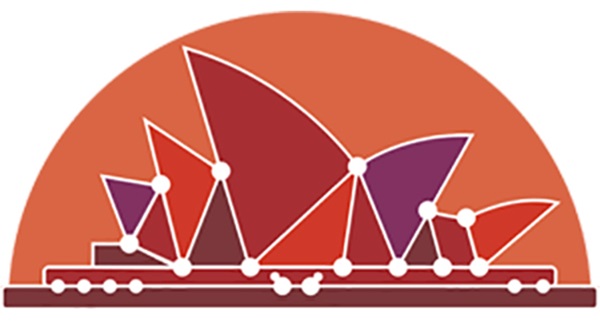
Coming to Australia for the first time, this conference brings together the most important players in synthetic biology worldwide, with a stellar line up of international and Australian speakers. Attendees will also have the opportunity to hear from Australia's Chief Scientist, Dr Alan Finkel. The conference program spans a diverse range of topics, from opportunities in the emerging knowledge-based bioeconomy, and breaking through the neo-synthetic sound barrier with neochromosomes, to the building of the world’s first synthetic eukaryotic genome.
When: 26-28 November 2018
Where: International Conference Centre, Sydney